US Oil Fund halted after saying it will change structure again as ETF tries to stave off collapse
PUBLISHED TUE, APR 21 20209:33 AM EDTUPDATED MOMENTS AGO
Pippa Stevens
@PIPPASTEVENS13
John Melloy
@JOHNMELLOY
WATCH NOW
VIDEO06:31
US stocks drop after oil hits historic lows—Five experts on what to watch
The United States Oil Fund, a popular exchange-traded security known for its ‘USO’ ticker which is supposed to track the price of oil and is popular with retail investors, plunged nearly 40% as the managers of the fund struggled to change its structure to stave off a collapse.
The latest change came on Tuesday afternoon when the fund said that it would be changing its structure for the second time since the end of last week. This time the fund is requesting to invest in varying oil futures contracts and said it had already moved money into the August crude oil contract.
The fund was halted, down 36% to $2.40. It was repeatedly halted for volatility on Tuesday after USCF, the manager of the fund, said that it was temporarily suspending the issuance of so-called creation baskets.
Creation baskets are how an ETF creates new shares to meet demand. The baskets hold the underlying securities which in this case are plummeting oil futures. With the halting of these creation baskets, the ETF will essentially now trade with a fixed number of shares like a closed-end mutual fund.
On Friday, USCF changed the structure of the USO fund so that it can hold longer-dated contracts. Per a regulatory filing, around 80% of the fund will be in the front-month contract, with 20% in the second-month contract.
That changed again with a new filing Tuesday afternoon.
The filing stated: “Commencing on April 22, 2020, USO in response to ongoing extraordinary market conditions in the crude oil markets, including super contango, may invest in the above described crude oil futures contracts on the NYMEX and ICE Futures in any month available or in varying percentages or invest in any other of the permitted investments described below and in its prospectus, without further disclosure. USO intends to attempt to continue tracking USO’s benchmark as closely as possible, however significant tracking deviations may occur above and beyond the differences described herein.”
John Davi, founder and CIO of Astoria Portfolio Advisors, said the new structures are being implemented as a way to try and protect investors from plunging crude prices. The coronavirus pandemic continues to sap worldwide demand for crude, which has sent prices to their lowest levels on record.
According to Davi, the USO is primarily owned by retail investors, which can be dangerous for those who believe they are betting on oil prices moving higher over time, without fully understanding the dynamics in the commodity market.
“To buy USO you have to understand the oil futures market,” Davi told CNBC. “They [retail investors] just buy the ETF because they think the price of crude will go up, but they don’t understand the drivers, which are fairly complicated.”
USCF did not provide a comment.
On Monday, the May contract for oil fell to a negative price, an unprecedented event wreaking havoc on the oil markets. The contract expires today. USO likely had already sold that contract because it has stated in the past that it would invest in the next contract two weeks before expiration. So it owns futures for the June month and now likely the July month, given the revised structure.
June futures began cratering as well on Tuesday, pressuring the fund. June futures expiring in a month dropped 50% to under $10 on Tuesday. July contracts fell 27%. The May contract, however, recovered a bit and was trading with a positive value again of $9.
USO could run into trouble if those contracts also fall to a negative value as they near expiration, mimicking the May contract’s plunge ahead of its expiration.
Negative futures value is unprecedented and it is unclear how products like exchange-traded funds built for the retail investor to participate in the market will handle such events.
Hayman Capital Management CIO Kyle Bass has been warning investors about the danger of exchange traded funds that track oil prices.
“Retail has been plowing into these oil contracts thinking they’re buying spot crude oil when they’re buying the next front month. So they’re paying $22 a barrel when the spot market’s negative $38. Retail investors are going to get fleeced if they continue to fly into these oil ETFs,” he said Monday on CNBC’s “Closing Bell.”
Following Monday’s price action, Bass, who said he holds short positions against some energy-focused ETFs, tweeted that he would demand 100% collateral.
Martes 21/04/20 Ventas de casas existentes
34 mensajes
• Página 3 de 3 • 1, 2, 3
Re: Martes 21/04/20 Ventas de casas existentes
Senate strikes deal on $484 billion relief package for small business, hospitals, testing
PUBLISHED TUE, APR 21 20208:31 AM EDTUPDATED MOMENTS AGO
Lauren Hirsch
@LAURENSHIRSCH
Yelena Dzhanova
@YELENADZHANOVA
The Senate reached a $484 billion coronavirus relief agreement that includes small business loans and funding for hospitals and testing.
It hopes to pass the bill Tuesday afternoon and send it to the House.
The deal would allocate $320 billion more for the Paycheck Protection Program, $60 billion of which would be set aside for small lenders.
It would also offer $75 billion for hospitals and $25 billion for coronavirus testing.
GP: Coronavirus Congress Senate Nears Vote On New Aid Plan With Talks Near A Deal
Ambulances sit parked outside of U.S. Capitol in Washington, D.C., U.S., on Tuesday, April 21, 2020. The Senate has scheduled a late afternoon session Tuesday in anticipation of approving an agreement on a nearly $500 billion stimulus bill, including $310 billion to replenish the small business program.
Sarah Silbiger | Bloomberg | Getty Images
Senate Republicans and Democrats reached a deal Tuesday on a $484 billion coronavirus relief package for small businesses, hospitals and testing.
The Senate could vote on legislation as soon as 4 p.m. ET on Tuesday, and will need unanimous support to pass it. The House could approve the bill as early as Thursday.
The deal would allocate $320 billion more for the Paycheck Protection Program, which provides small business loans, Senate Majority Leader Mitch McConnell said. $60 billion of that would be set aside for small institutions, according to a bill summary released by his office. Half of the $60 billion would go to lenders with assets of less than $10 billion, and half would go to those with assets between $10 billion and $50 billion.
Another roughly $60 billion would go to the Economic Injury Disaster Loan program, $10 billion of which would be in the form of grants. The program, which is separate from the PPP, quickly went through the $10 billion originally allotted to it as part of the first small business plan.
The bill grants $75 billion for hospitals and $25 billion for coronavirus testing. Out of the testing funding, $11 billion would go to states, people familiar with the deal said. The remaining funds would go to agencies like the Centers for Disease Control and Prevention and the National Institutes of Health. Up to $1 billion may be used to cover the costs of testing for the uninsured.
The bill clarifies that agriculture companies are eligible for the EIDL program, after previous concern they were not.
Here’s what the bill would include:
$310 billion total for PPP, with $250 billion unrestricted and $60 billion set aside for smaller institutions
$50 billion for EIDL loans and $10 billion for EIDL grants
$75 billion for hospitals
$25 billion for testing, $11 billion of which will be distributed to states
$2.1 billion for Small Business Administration administrative expenses
“I welcome this bipartisan agreement and hope the Senate will quickly pass it once members have reviewed the final text,” McConnell said in a statement, criticizing Democrats for resisting the passage of additional small business funding earlier this month “in a search for partisan ‘leverage’ that never materialized.”
Senate Minority Leader Chuck Schumer said Tuesday morning that he believes the Senate will pass an additional relief bill for small businesses later in the day.
Schumer, D-N.Y., told CNN that he spoke “well past midnight” with House Speaker Nancy Pelosi, White House chief of staff Mark Meadows and Treasury Secretary Steven Mnuchin, and “came to an agreement on just about every issue.”
The government has been under pressure to replenish a fund allocated to small businesses as part of the $2.2 trillion relief bill President Donald Trump signed late last month. The program offers forgivable loans to companies that agree to maintain payroll. Its funds, which totaled $349 billion, ran out last week, putting pressure on businesses that retained employees in hopes of obtaining the loan.
“Staff were up all night, writing. There’s still a few more I’s to dot and T’s to cross, but we have a deal. And I believe we’ll pass it today,” Schumer said.
Democrats had fought to carve out pots of money devoted exclusively to smaller businesses after larger companies with close bank relationships quickly swooped up the original pot of money.
“We insisted that a chunk of the money be separate from the competition with the bigger companies, you know the ones that have two, three, 400 people and a relationship with the banks,” Schumer said Tuesday.
Democrats had also pushed for more aid to states and local governments to weather the crisis, as funds have quickly dried up. Senate Majority Leader Mitch McConnell, R-Ky., told Republican members on Sunday the package would not include the Democrats’ push for state and local government funding.
On Tuesday, Trump tweeted that he wants to see additional money for state
PUBLISHED TUE, APR 21 20208:31 AM EDTUPDATED MOMENTS AGO
Lauren Hirsch
@LAURENSHIRSCH
Yelena Dzhanova
@YELENADZHANOVA
The Senate reached a $484 billion coronavirus relief agreement that includes small business loans and funding for hospitals and testing.
It hopes to pass the bill Tuesday afternoon and send it to the House.
The deal would allocate $320 billion more for the Paycheck Protection Program, $60 billion of which would be set aside for small lenders.
It would also offer $75 billion for hospitals and $25 billion for coronavirus testing.
GP: Coronavirus Congress Senate Nears Vote On New Aid Plan With Talks Near A Deal
Ambulances sit parked outside of U.S. Capitol in Washington, D.C., U.S., on Tuesday, April 21, 2020. The Senate has scheduled a late afternoon session Tuesday in anticipation of approving an agreement on a nearly $500 billion stimulus bill, including $310 billion to replenish the small business program.
Sarah Silbiger | Bloomberg | Getty Images
Senate Republicans and Democrats reached a deal Tuesday on a $484 billion coronavirus relief package for small businesses, hospitals and testing.
The Senate could vote on legislation as soon as 4 p.m. ET on Tuesday, and will need unanimous support to pass it. The House could approve the bill as early as Thursday.
The deal would allocate $320 billion more for the Paycheck Protection Program, which provides small business loans, Senate Majority Leader Mitch McConnell said. $60 billion of that would be set aside for small institutions, according to a bill summary released by his office. Half of the $60 billion would go to lenders with assets of less than $10 billion, and half would go to those with assets between $10 billion and $50 billion.
Another roughly $60 billion would go to the Economic Injury Disaster Loan program, $10 billion of which would be in the form of grants. The program, which is separate from the PPP, quickly went through the $10 billion originally allotted to it as part of the first small business plan.
The bill grants $75 billion for hospitals and $25 billion for coronavirus testing. Out of the testing funding, $11 billion would go to states, people familiar with the deal said. The remaining funds would go to agencies like the Centers for Disease Control and Prevention and the National Institutes of Health. Up to $1 billion may be used to cover the costs of testing for the uninsured.
The bill clarifies that agriculture companies are eligible for the EIDL program, after previous concern they were not.
Here’s what the bill would include:
$310 billion total for PPP, with $250 billion unrestricted and $60 billion set aside for smaller institutions
$50 billion for EIDL loans and $10 billion for EIDL grants
$75 billion for hospitals
$25 billion for testing, $11 billion of which will be distributed to states
$2.1 billion for Small Business Administration administrative expenses
“I welcome this bipartisan agreement and hope the Senate will quickly pass it once members have reviewed the final text,” McConnell said in a statement, criticizing Democrats for resisting the passage of additional small business funding earlier this month “in a search for partisan ‘leverage’ that never materialized.”
Senate Minority Leader Chuck Schumer said Tuesday morning that he believes the Senate will pass an additional relief bill for small businesses later in the day.
Schumer, D-N.Y., told CNN that he spoke “well past midnight” with House Speaker Nancy Pelosi, White House chief of staff Mark Meadows and Treasury Secretary Steven Mnuchin, and “came to an agreement on just about every issue.”
The government has been under pressure to replenish a fund allocated to small businesses as part of the $2.2 trillion relief bill President Donald Trump signed late last month. The program offers forgivable loans to companies that agree to maintain payroll. Its funds, which totaled $349 billion, ran out last week, putting pressure on businesses that retained employees in hopes of obtaining the loan.
“Staff were up all night, writing. There’s still a few more I’s to dot and T’s to cross, but we have a deal. And I believe we’ll pass it today,” Schumer said.
Democrats had fought to carve out pots of money devoted exclusively to smaller businesses after larger companies with close bank relationships quickly swooped up the original pot of money.
“We insisted that a chunk of the money be separate from the competition with the bigger companies, you know the ones that have two, three, 400 people and a relationship with the banks,” Schumer said Tuesday.
Democrats had also pushed for more aid to states and local governments to weather the crisis, as funds have quickly dried up. Senate Majority Leader Mitch McConnell, R-Ky., told Republican members on Sunday the package would not include the Democrats’ push for state and local government funding.
On Tuesday, Trump tweeted that he wants to see additional money for state
- admin
- Site Admin
- Mensajes: 165584
- Registrado: Mié Abr 21, 2010 9:02 pm
Re: Martes 21/04/20 Ventas de casas existentes
LAST CHG %CHG
DJIA 23018.88 -631.56 -2.67
S&P 500 2736.56 -86.60 -3.07
Nasdaq Composite 8263.23 -297.50 -3.48
Japan: Nikkei 225 19280.78 -388.34 -1.97
UK: FTSE 100 5641.03 -171.80 -2.96
Crude Oil Futures 9.06 -0.95 -9.49
Gold Futures 1702.20 -9.00 -0.53
Yen 107.70 -0.06 -0.06
Euro 1.0858
DJIA 23018.88 -631.56 -2.67
S&P 500 2736.56 -86.60 -3.07
Nasdaq Composite 8263.23 -297.50 -3.48
Japan: Nikkei 225 19280.78 -388.34 -1.97
UK: FTSE 100 5641.03 -171.80 -2.96
Crude Oil Futures 9.06 -0.95 -9.49
Gold Futures 1702.20 -9.00 -0.53
Yen 107.70 -0.06 -0.06
Euro 1.0858
- admin
- Site Admin
- Mensajes: 165584
- Registrado: Mié Abr 21, 2010 9:02 pm
Re: Martes 21/04/20 Ventas de casas existentes
¡¡¡NEW!!! Los graficos del dia, 
.
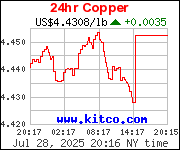
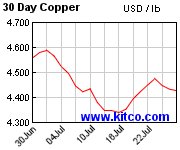
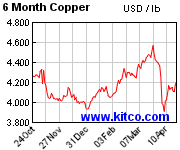
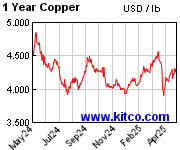
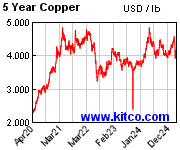
.

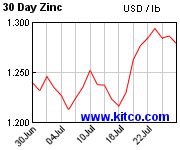
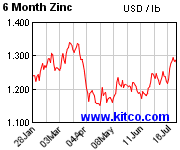
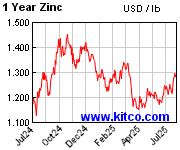
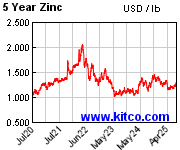
.

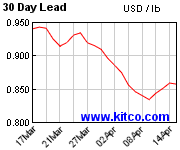
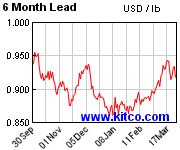
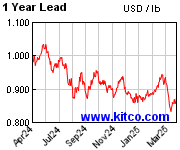
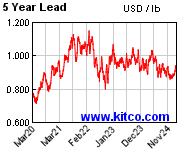
.




.




.
.





.





.





.




.




.
- Comodoro
- Mensajes: 980
- Registrado: Jue May 06, 2010 8:24 am
- Ubicación: LIMA
34 mensajes
• Página 3 de 3 • 1, 2, 3
¿Quién está conectado?
Usuarios navegando por este Foro: No hay usuarios registrados visitando el Foro y 62 invitados
